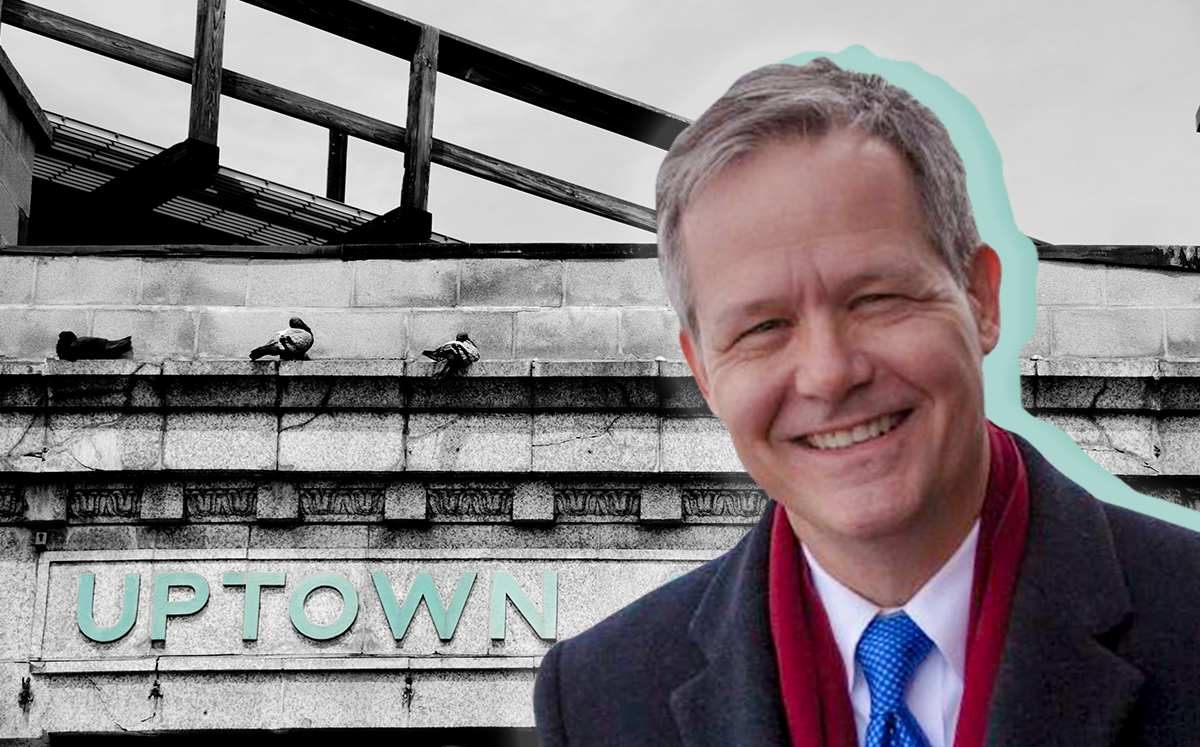UPDATE, Jan. 31, 3:55 p.m.: Alderman James Cappleman (46th) was hours into his new role as the chairman of the City Council’s critical zoning committee Wednesday when he announced he would use the position to hold up Sterling Bay’s $6 billion Lincoln Yards proposal.
The widening vortex of scandals consuming the City Council, first with the bombshell corruption charges around Alderman Ed Burke (14th) and then with the allegations that forced Alderman Danny Solis (25th) to resign his committee post, has thrown momentum behind the growing crop of council members who are vowing to vote against the current Lincoln Yards plan.
Cappleman, now locked in his own tough race for a third term amid an election season that threatens to throw out plenty of longtime incumbents, added his newly-elevated voice to the opposition.
The alderman told The Real Deal on Thursday that he wants to allow time for community groups near the 54-acre Lincoln Yards site to review the latest draft of the master plan, which was released days before the Chicago Plan Commission approved it last week. He also wants to hear proposals for some of the 600 off-site affordable units proposed in the plan to be built nearby using money from the city’s Low-Income Housing Trust Fund, instead of subsidizing existing units in surrounding wards.
In deciding to delay the hearing, Cappleman took a swipe at the council’s sacred but unwritten code of “aldermanic privilege” by questioning the proposal after Alderman Brian Hopkins (2nd), whose ward includes the site, had already endorsed it.
His announcement also put him in a position neither his allies nor his opponents are used to seeing him take: Holding up a major new development because it lacked enough affordable housing.
During the past eight years, Cappleman has invited developers to build hundreds of market-rate units in his North Side neighborhood, opening the floodgates to a tidal wave of gentrification his predecessor had famously resisted for decades.
The former social worker and LGBT activist first jumped into ward politics in 2007, when he challenged then-Alderman Helen Schiller’s tight embrace of federally subsidized housing and said she treated “persistent street crime” as a “fact of urban life,” according to the New York Times.
Cappleman narrowly lost that election but ran again in 2011, when Schiller announced she would retire after 24 years in office, and he rode to victory on a similar tough-on-crime platform.
Suddenly, developers whose proposals for Uptown had been repeatedly shot down by Schiller found a new friend in the ward office.
“There was all this buzz from owners who had been hesitant to sell their properties, because government had been an obstacle for decades and decades,” said Joe Scheck, a multifamily broker with the Essex Realty Group. “They realized Cappleman’s vision is really close in line with the vision of developers, who wanted to re-create a cool, hip part of Chicago the way it was originally intended.”
Cappleman cleared the way for developer Cedar Street Companies to buy up dozens of distressed properties in the neighborhood and fill some of them, including the historic Lawrence House hotel, with high-end micro-apartments.
He shepherded the approval of JDL Development’s 381-unit apartment complex at 811 West Montrose, Clayco’s proposal for 149 units and Praedium’s Development’s 197-unit building at 4601 North Broadway, allowing all the developers to skate by with the minimum number of legally required on-site affordable units. He even approved a $15.8 million payout for the Montrose project from a public tax increment financing district fund, despite objections from a neighboring alderman, DNAinfo reported at the time.
The Uptown development boom is taking shape around the city’s $200 million reconstruction of the Wilson Red Line station, opening capacity for more residents and visitors than ever to spill out onto the neighborhood’s main drag along Broadway.
But the changes have been divisive, as skyrocketing property values have coincided with a surge in the affluent population of the diverse neighborhood while other groups have fled or been forced out.
Cappleman has come under criticism for some highly visible changes to the neighborhood, like the closed Stewart Elementary School being redeveloped into luxury lofts and two permanent homeless encampments being removed to make way for bike lanes on Wilson and Lawrence avenues.
His campaign has also taken tens of thousands of dollars in donations from property owners and brokers, including a $10,000 donation from @properties co-founder Thad Wong, according to the nonprofit election tracker Illinois Sunshine.
The alderman has defended his courting of wealthy residents by repeatedly pointing to the outsized concentration of low-income housing in Uptown, where more than 2,700 federally-subsidized units eclipse the total in other neighborhood in the city.
Rather than following his predecessor to crank that number higher, Cappleman has made a mantra of challenging other aldermen — especially those whose wards have little or no subsidized housing — to approach his ward’s level.
On Wednesday, he finally got a chance to put force behind that challenge.
“The vast majority of affordable housing is concentrated in just a few wards, but this is a citywide crisis,” Cappleman said. “We need to do things to encourage more affordable housing everywhere … and I want Alderman Hopkins to look at ways we can do that in the 2nd Ward.”
